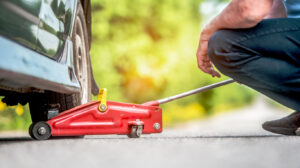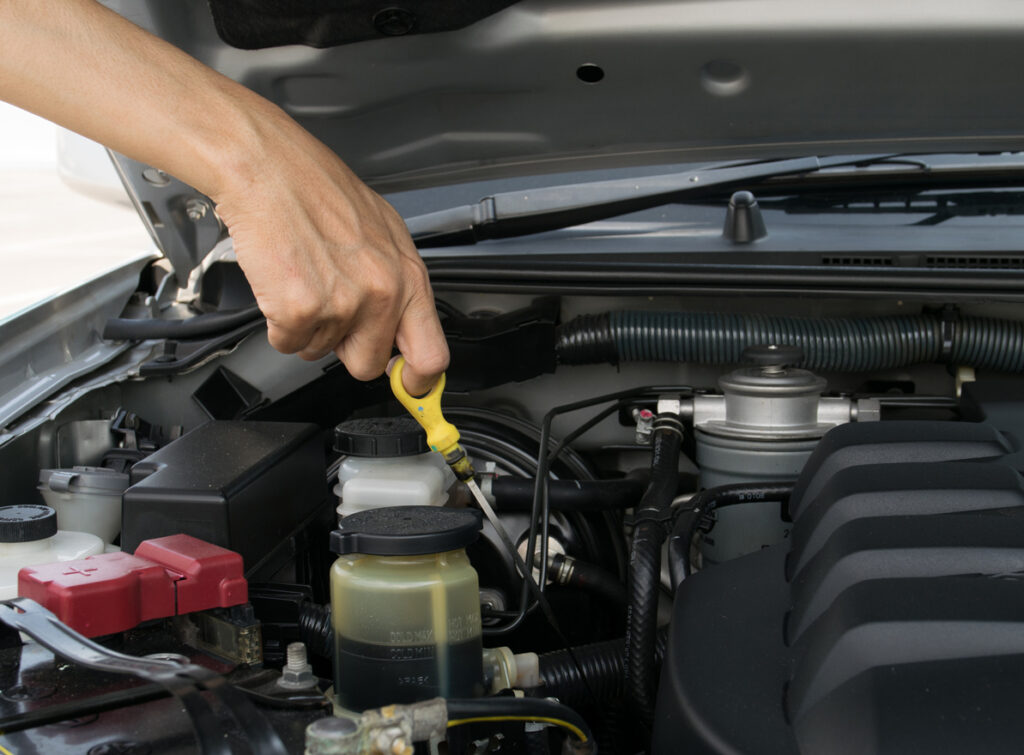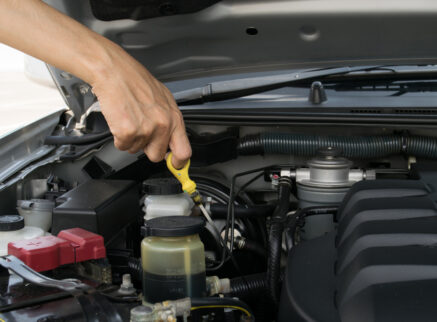By Lori Straus
Sometimes, no matter how hard we try to avoid it, we have to drive through deep water. Pull over as soon as you can and inspect your vehicle. Water can cause a lot of damage, and you don’t want to cause expensive repairs by continuing to drive. In this blog post, we’ll cover what to look for if you have driven through deep water.
Engine Issues
How is your engine? Has anything changed? Listen for new engine noises you did not hear before your drive through deep water, and notice any difficulties in starting your engine. Do not assume that these engine issues will disappear on their own once the engine has dried out. For starters, an engine can’t dry out, because water has nowhere to go once it’s entered your engine.
Have your engine inspected immediately. Don’t even drive to your local garage: call the tow truck.
Signs of Car Flooding
Thoroughly inspect your car’s interior for signs of car flooding. Assume that any dampness you detect is from water getting in. Assess the damage and consider taking your vehicle to your mechanic to inspect for signs of rust.
Check the Undercarriage

Inspect under your vehicle for debris. Clear what you can safely, even jacking up your vehicle if you have the tools and knowledge to do so. Moist dirt on metal can cause corrosion, which can lead to expensive repairs. Get your car cleaned as soon as possible.
Test Your Brakes
Stepping on the brakes a few times after driving through deep water can help dry them, but it’s not enough to ensure they aren’t damaged. In addition, the lubrication on suspension joints may have been washed off, depending on how fast the water was moving. Ask your mechanic to check them to be on the safe side.
Remember the Other Fluids

If you regularly check your vehicles fluids as part of your normal vehicle maintenance, do so immediately. You’ve just driven through deep water, so you don’t want to wait.
You’re looking for any signs of contamination. Replace your fluids if you know how. Otherwise, ask your mechanic to take care of the task.
Try All Electrical Systems
Even if the water you drove through was only a few inches deep, you’ll want to inspect all electrical systems in case anything got splashed with enough water to damage it. Turn on all your vehicle’s lights and walk around your vehicle to make sure they’re all working. Also test your rear camera and vehicles sensors and open and close all windows.
Last, if you notice any changes in how your vehicle steers, have it inspected immediately. There may be an issue with your power steering.
Our Recommendation: Take Your Vehicle In
Ultimately, we recommend you ask a mechanic do a full inspection on your vehicle. We know expense can be an issue, but this is truly a case where you need to make safety a priority. All the vehicles are designed to withstand rain and snow, they are not designed to withstand swimming and heavy splashing. Last thing you want is to be on the road when a component you thought was OK gives out and causes an accident. Then the repairs will get hefty.
[LS1]Link to article on engine noises


